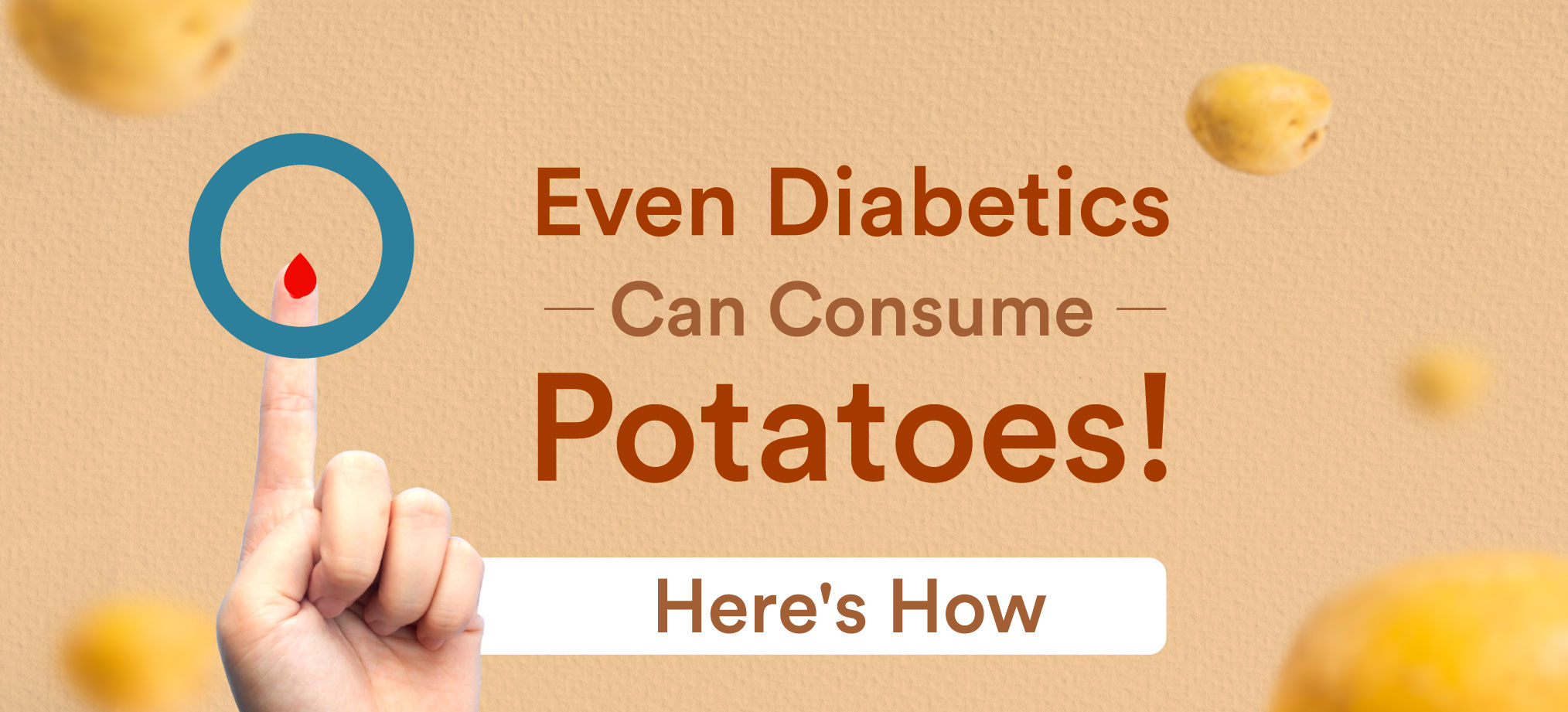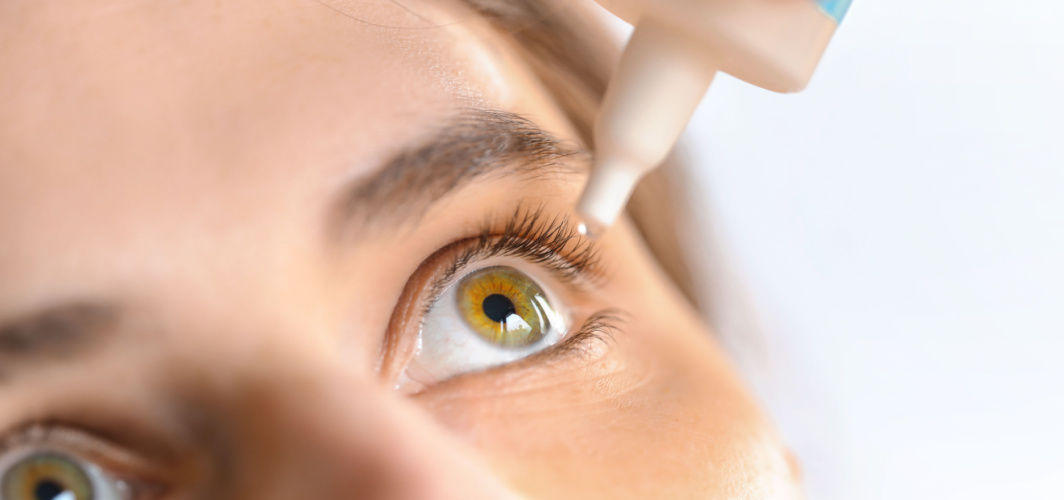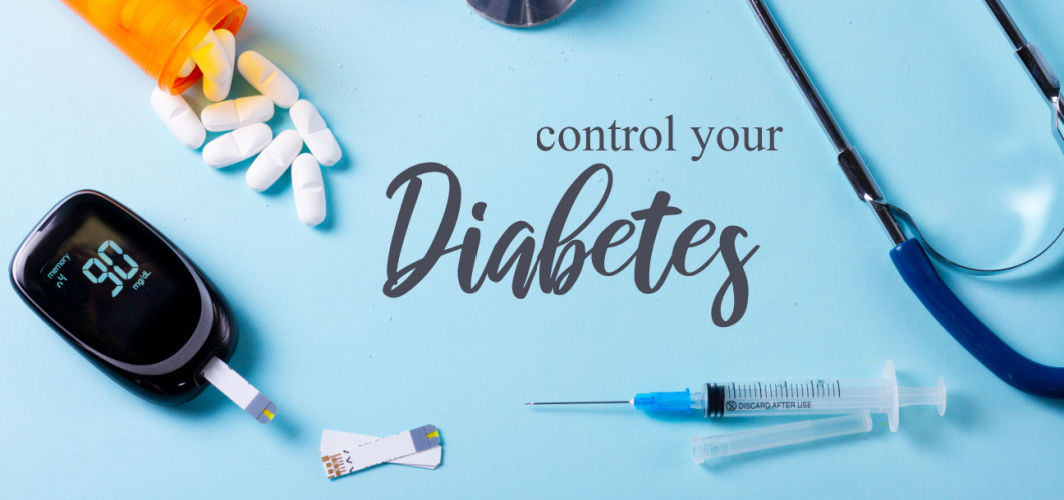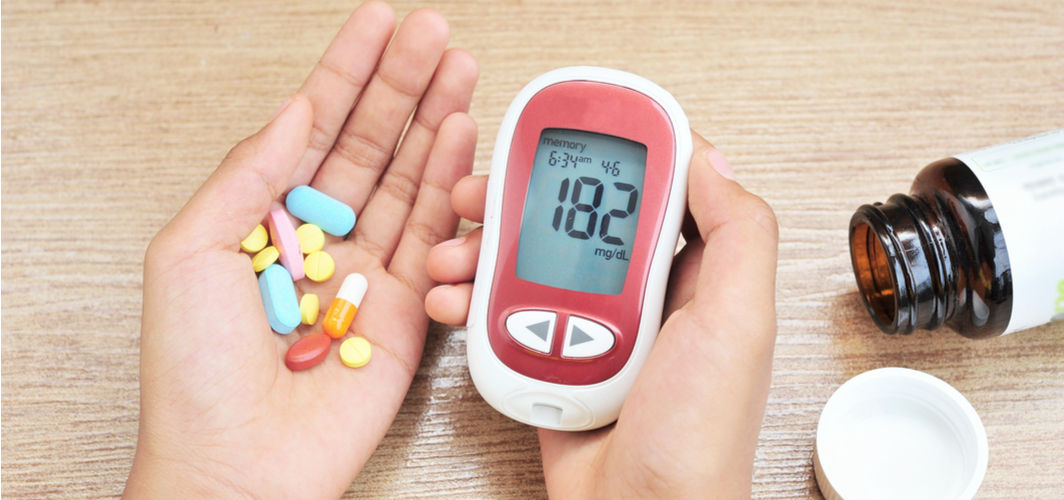Diabetes Management
Potatoes & Diabetes: Ways To Consume Potatoes Without Spiking Blood Sugar
4 min read
By Apollo 24|7, Published on - 15 February 2023, Updated on - 05 September 2023
Share this article
0
1 like

Once a person is diagnosed with diabetes, they are recommended to cut down on complex carbohydrates, which are found in foods like rice and potatoes. Does that mean a diabetic can never eat potatoes or sweet potatoes? Well, they can! We know you'd be a little confused by this statement. Let us read more to clear our facts.
Impact of potatoes on blood sugar levels
Potatoes are among the most popularly consumed food in the human diet. Not only are they delectable but also can be made in a variety of ways to suit everyone's taste. They are rich in vitamins B, and C, and minerals like potassium, phosphorus and manganese. Potatoes also provide a considerable level of fibre in the diet. However, since they are a form of complex carbohydrates, they can spike your blood glucose levels when consumed in high quantities or in fried forms.
In general, potatoes are regarded as foods with a high glycaemic index. The glucose index (GI) is a measure that evaluates how quickly that particular food raises your blood sugar levels. However, the GI of potatoes changes with different cooking techniques:
- Fried potato has a GI of 95
- Baked potato has a GI of 85
- Boiled potato has a GI of 50
- Sweet potatoes have a GI of 61
This shows that a diabetic can consume boiled and sweet potatoes as their GI is low and would not affect their blood sugar levels severely.
How should diabetics consume potatoes?
Patients with diabetes need to be mindful of how much and what form of carbohydrates they consume at each meal in general. Ways in which diabetics can consume potatoes include:
- Potato salad: This is the best way to include potatoes in the diet as cooled boiled potatoes contain resistant starch, which lowers the GI of the potatoes and makes them ideal for diabetic patients.
- Skinned potatoes: Eating potatoes with skin provides fibre to the diet and also helps also in regulating the blood sugar level.
- Adding cheese to potatoes: Potatoes' GI is decreased when they are combined with cheese (fat), preventing a sudden spike in blood sugar levels.
Boiled potatoes or cooled potato salads in low portion sizes are considered safe for consumption, while deep-fried forms such as French fries and chips should be avoided completely.
Consult An Apollo Diabetologist
FAQs
Q. Can diabetic patients eat sweet potatoes?
As a moderate GI food (46-61), sweet potatoes are beneficial for those with type 2 diabetes. The high magnesium and fibre content of sweet potatoes can help to reduce insulin resistance and stabilise blood sugar levels. Therefore, diabetic patients can consume sweet potatoes in moderation.
Q. Is it okay for diabetic patients to eat potato chips?
Deep-fried potato chips have the highest GI score and contain unhealthy fats, which makes them harmful to diabetic patients.
Q. What is the ideal way for diabetic patients to eat potatoes?
The best way to eat normal and sweet potatoes if you have diabetes is to boil them first, then let them cool before eating. Potatoes can be eaten in salads or in reasonable portions as a cooked vegetable along with other fat-rich food. However, due to their high GI score, diabetic patients must consume potatoes with caution.
Q. What is the best variety of potatoes for diabetic patients?
For people with diabetes, waxy potatoes or Carisma potatoes are the best options because they contain less starch. The typical Russet variety of potatoes has a high GI and is very starchy.
Q. What is the alternative option to potatoes for diabetic patients?
The safe alternative or more diabetic-friendly vegetables for diabetic patients are sweet potatoes, carrots, green vegetables, beetroot and broccoli.
Consult An Apollo Diabetologist
You can also manage your diabetes like a pro with Apollo 24|7's 12-week empower programme.
Diabetes Management
Leave Comment
Recommended for you

Diabetes Management
Diabetes and Dry Eyes: Is there a Connection?

Diabetes Management
What Is Pre-diabetes? When Does It Progress Into Diabetes?
Pre-diabetes is a condition in which blood sugar levels are higher than normal but not yet in the diabetic range. It serves as a warning sign, indicating an increased risk of developing type 2 diabetes. Progression to diabetes typically occurs when pre-diabetes is not managed through lifestyle changes. This transition can vary from person to person, but individuals with pre-diabetes can often prevent or delay the onset of diabetes by maintaining a healthy weight, engaging in regular physical activity, and making dietary adjustments to improve blood sugar control.

Diabetes Management
Blood Pressure Lowering Medicines May Reduce the Risk of Type 2 Diabetes
Blood pressure-lowering medicines may reduce the risk of developing type 2 diabetes. Some medications, such as ACE inhibitors and ARBs, have shown potential in improving insulin sensitivity and glucose metabolism. By controlling blood pressure levels, these medications may help mitigate the risk and progression of type 2 diabetes in individuals with hypertension.
Subscribe
Sign up for our free Health Library Daily Newsletter
Get doctor-approved health tips, news, and more.
Visual Stories

8 Fruits That are Incredibly Healthy for Diabetes
Tap to continue exploring
Recommended for you

Diabetes Management
Diabetes and Dry Eyes: Is there a Connection?

Diabetes Management
What Is Pre-diabetes? When Does It Progress Into Diabetes?
Pre-diabetes is a condition in which blood sugar levels are higher than normal but not yet in the diabetic range. It serves as a warning sign, indicating an increased risk of developing type 2 diabetes. Progression to diabetes typically occurs when pre-diabetes is not managed through lifestyle changes. This transition can vary from person to person, but individuals with pre-diabetes can often prevent or delay the onset of diabetes by maintaining a healthy weight, engaging in regular physical activity, and making dietary adjustments to improve blood sugar control.

Diabetes Management
Blood Pressure Lowering Medicines May Reduce the Risk of Type 2 Diabetes
Blood pressure-lowering medicines may reduce the risk of developing type 2 diabetes. Some medications, such as ACE inhibitors and ARBs, have shown potential in improving insulin sensitivity and glucose metabolism. By controlling blood pressure levels, these medications may help mitigate the risk and progression of type 2 diabetes in individuals with hypertension.